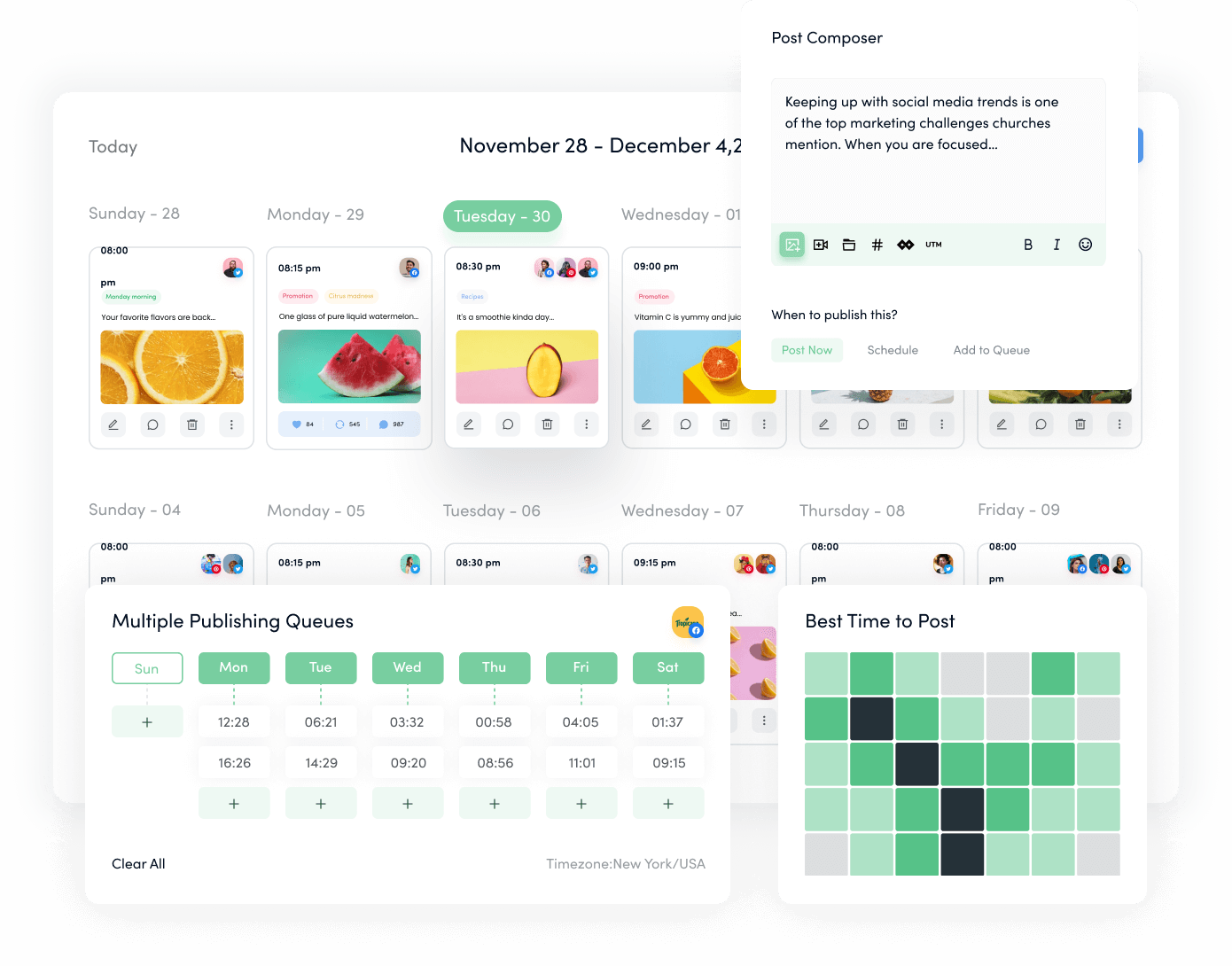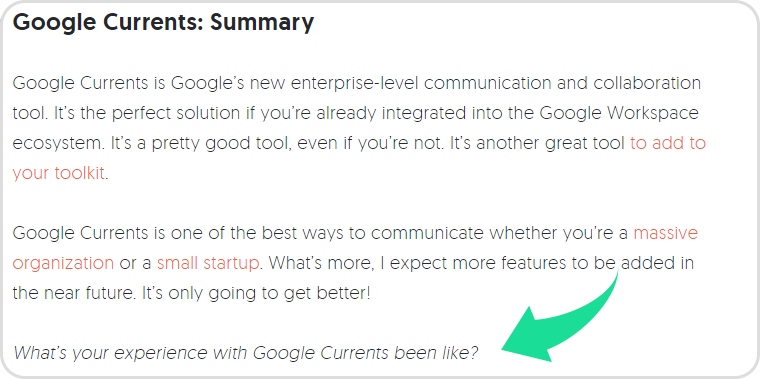Navigating the vast sea of social media updates can be challenging for bloggers, marketers, and social media managers. The struggle to write a shareable blog post that stands out is real.
Imagine hitting the publish button, only to find no one engaging with your content within the next 48 hours. It’s disheartening, isn’t it?
Even though you can’t guarantee that the blog post you’re about to publish would get shared a lot on social media, but there are some basic techniques that you can bet on to give your best shot.
If you look at the social media sharing of HubSpot and Moz, they didn’t reach this point in a jiffy – these blogs have been around for years. I’m going to share a few steps with you that will help you understand the content shareability factors.
7 simple steps to write a shareable blog post:
In today’s saturated social media environment, capturing attention with your blog posts can be a daunting task. Learn how to create content that resonates and gets shared.
1. Choose an irresistable topic
It all begins with a topic that people are interested in reading. It may take some time to come up with the idea that could excite people to click-through to check out, but it would be worth it. What an enticing topic does is that it makes people curious to find out what the author has to say. Have a look at ContentStudio’s attention grabbing topics:

It’s imperative to pay attention to the topic before choosing and starting writing. There are many ways to figure out whether or not people might be interested in a topic. It comes down to keeping an eye on the things around your blog. You could also look at Google Trends or ContentStudio Discovery tool to find out the popular content on the web and social media sites.
It doesn’t have to be a trendy topic every time you sit down to write a blog post. Instead, you could come up with a blog idea that people might be interested in reading. It does require a whole lot of planning, and every blog post can’t get the same kind of response that you would hope for eventually. So embrace that.
You can also share the product’s new features with your audience through blogging.
For example, take a look at this blog post from Contentstudio:

It does create excitement for the readers to find out what exactly the new feature is and how it could help them.
So go ahead and test out different topics in your niche and see what happens.
2. Write in a reader-friendly tone
What if I tell you that your writing style can make or break a connection with a reader?
There are, of course, numerous ways to write a blog post. Every blogger has a different style of writing blog posts – some of us prefer to write in a conversational tone, while others keep it formal. No matter what your blog post format is, pay close attention to writing in a captivating way to make sure that it looks reader-friendly.
There could be certain things you could do to achieve that:
- Write short paragraphs: One of the best things you could do for writing a digestible blog post is writing short paragraphs. People tend to start reading if the blog post doesn’t seem hefty to read.
- Use easy-to-understand words: One simple way to connect with your readers is by using clear and straightforward language in your content. While it’s beneficial to expand your vocabulary when necessary, for shareable blog posts, simplicity is key.
- Add screenshots and images: Sometimes, you might be making a point in your blog post, and the best way to explain the scenario is by adding screenshots and images where possible. Don’t overthink about the screenshots; just try adding where you can.
- Give resources and examples: Another way of making your content useful and helpful for the audience is by linking to relevant online resources such as online tools and websites. In fact, don’t hesitate to add up examples in your blog posts. Resources and examples make your blog post a whole lot better.
For example, check this Copyblogger’s blog post:

It makes the message clear that what the author wants to convey. The digestible tone isn’t just for the blog post content, but it applies to the blog post title as well.
Moreover, it doesn’t necessarily refer to just the wording of the blog post. Instead, it also covers how you communicate with the readers throughout the blog post. So hopefully these things would help you write digestible content for the readership.
3. Solve a specific problem
If you want to write a shareable blog post that your friends and followers share on social media, then make sure you don’t miss out on the problem-solving part – I can’t comprehend a blog post being shared by the readers if it’s not solving a problem for them.
It all starts with your message that you want to give out in the blog post. If the quality of the message is unprecedented, the chances are, people would pay attention to it.
The upside of solving the problem is that it could also get ranked in the search engine because you wrote the blog post with a specific reader persona in mind, and if things work out from the SEO perspective, you may start getting organic traffic from the search engines as well.
Have a look at ContentStudio’s help guides, all of them aims to solve a specfic problem:

4. Thoughtful layout:
The presentation of your blog post matters as much as the content itself. Optimize your layout for readability and visual appeal. Break up text with subheadings, bullet points, and relevant images to enhance comprehension.
Additionally, ensure your post is mobile-friendly, as many readers access content on smartphones and tablets. A well-structured layout improves user experience and encourages sharing across social platforms.

5. Optimize posting schedule:
Timing is everything in the world of social media. Utilize ContentStudio’s blog scheduling feature to optimize your posting schedule for maximum impact. Analyze your audience’s behavior to determine the best times to publish your blog posts.
By strategically planning your posts, you can reach a larger audience and increase the likelihood of shares. Consistency and timing are key elements in maximizing your blog’s social media presence.
Social Media Content Calendar
Stay consistent and organized with Contentstudio’s social media content calendar for marketers and agencies.
Get Started for FREE
6. Harness the power of AI tools:
Leverage ContentStudio’s blog AI feature to enhance your content creation process. From generating topic ideas to optimizing headlines and analyzing performance, AI tools streamline your workflow and improve results.
By harnessing the power of AI, you can create more engaging and shareable blog posts in less time. Stay ahead of the curve with cutting-edge technology that empowers your content strategy.
7. Ask to share the blog post
A simple strategy you can test out is to ask people to share your content. Now, I don’t recommend asking your readers to share right in the beginning, but in the end, you can certainly do that. A lot of YouTubers often ask to share their videos at the end of their videos. You can do the same thing in the blog posts.
Many marketing experts believe that if you don’t ask, you don’t get. If you read Adam Grant’s book Give and Take, you’ll be surprised to find out that how “giving” helps people win, and you can elicit that.
If 100 people come across your blog post, all of them might not share it, but if 10 people do that, then it could make a difference.
What asking for sharing does is that it brings in the reader’s engagement. When a reader shares, the chances are, it could lead to more readers.

Neil Patel always asks a question at the end of the blog post.
The purpose is the same: engagement
So don’t hesitate to ask for sharing your blog post in the end.
Conclusion
I’ve shared seven steps that have helped me tremendously over the past few years.
I believe that if someone puts some effort into creating helpful and beneficial content for the readers – it always increases the chances of getting shared. However, if a topic is quite interesting, but the writing isn’t that appealing, then it might not help the cause.
Crafting a shareable blog post requires a strategic approach and attention to detail. By choosing compelling topics, writing in a reader-friendly tone, solving specific problems, optimizing your layout, timing your posts effectively, and harnessing AI tools, you can increase your chances of social media success.
Remember, building authority and trust takes time, but with dedication and perseverance, your blog posts can become valuable assets that resonate with your audience and inspire them to share.
FAQs
What are the key elements of a shareable blog post?
A shareable blog post comprises several crucial elements.
- Offer valuable and engaging content that resonates with the target audience.
- Incorporating unique insights, research findings, or practical advice .
- Integrating captivating visuals such as infographics, videos, or interactive elements.
- Including a clear call-to-action prompts readers to take the next step.
How can I optimize my blog post for social media sharing?
To optimize your blog post for social media sharing, use eye-catching images, craft concise headlines, and integrate social sharing buttons. Also, leverage hashtags and tag influencers to expand your post’s reach.
What role does storytelling play in creating shareable blog posts?
Storytelling is vital for shareable blog posts. It forges deeper connections by weaving narratives or personal experiences into your content, making it relatable. This emotional resonance compels readers to engage and share, making your content memorable and share-worthy. Incorporating storytelling elements boosts your blog posts’ shareability and virality.
What has worked for you so far in creating shareable blog posts?
Share with us.

Leave a Reply